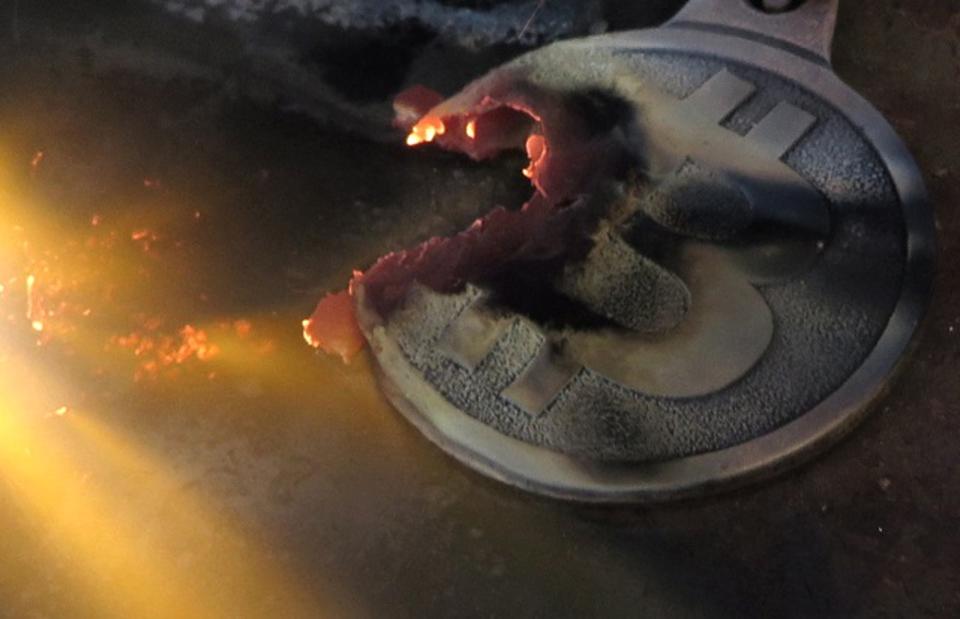7 Lies?
A recent article in Forbes took what appears to be a semi-informed jab at Bitcoin, and I thought it was worth the time to weigh in on its points.
Lie #1: Bitcoin is Like Something Else
Actually, I have no problem with describing this as a "lie". Bitcoin is indeed different, and this contributes in a big way to its long-term unpredictability. The trouble is that this statement cuts both ways - those guilty of using the "tulip" analogy must face the fact that they're talking about a completely different asset that is only beginning to show its utility. The only comparison that I think even comes close is with the early days of the Internet, and even then, Bitcoin is more nuanced and has a different kind of potential.
Lie #2: Bitcoin is Secure
Again, a fairly valid point. It's about as secure as you make it, which is not much different from any other investment. Everyone who holds Bitcoin owes it to themselves to learn about the best security practices and make sure that their wallet, if possible, never touches the 'net. Those walking around with large amounts of currency in their pockets (so to speak) will be the ones who cry later.
Lie #3: Bitcoin is Money
I think the author is trying to point to the fact that money is not so volatile that 10 years will drastically stretch the value as with Bitcoin. However, in my opinion, he fails to consider how fast currency can depreciate. Sure, in the U.S. and other "first world" countries, we're trying to achieve some semblance of stability. But what about elsewhere? And everyone ought to know that, given 30 years or so, the dollar has nowhere near the same purchasing power it once did. What's more, savings accounts don't save you from that inflation, and surely HODLing has little benefit if you're holding onto a $20 bill long-term. The only way to fight the changing value is to make more. And Bitcoin users don't have to keep acquiring more to keep value.
As for vendors who accept Bitcoin, I don't see that as being any different than giving someone an asset other than money as payment, though in this case it's a volatile asset. Bitcoin DOES have a value and will continue to have it in all likelihood. Should you spend Bitcoin in this way? It's up to you. I personally think that the surges in Bitcoin price ought to give you pause before you try to exchange it for goods and services.
He also makes a point about illegal activities involving Bitcoin. Call me strange, but I have never considered this a point against it. Any asset, any currency, and anything of any value will be used for purposes that are frowned upon, inevitably. That says nothing about the asset's worth or the majority of people who hold it.
Lie #4: Bitcoin has Intrinsic Value Outside of its Minability
Mining does determine a chunk of the cost, yes, but this argument strikes me as something akin to saying the computer that you bought is only intrinsically worth the price of the silicon and metal. Why can you not buy a computer for just that price? Utility, demand, and labor are just a few of the factors involved, none of which are free of charge. As another analogy, think of paper money. It's intrinsically worth the cost of the paper and ink, probably mere pennies for every dollar printed, yet we value it because our government says we should. In other words, intrinsic value is a poor predictor of long-term outcomes, and is in some cases almost meaningless.
Another point is that other types of cryptocurrency serve functions beyond simple currency (Ethereum comes to mind). That has an impact on intrinsic value. Maybe Bitcoin will evolve in this direction in the future. And even if it does not, the ability to manage your holdings without having to trust anyone, make global transactions quickly, and exchange freely for other kinds of assets are all valuable to the point of being priceless.
Lie #5: Bitcoin is Not in a Bubble
It could be. But again, comparisons are hard to make. A huge number of investment experts and economists have no idea what to do with the phenomenon of Bitcoin, because its "bubble" is so complex and quick to recover that it may as well be considered unpredictable. I'll happily admit there's a bubble when the price tanks over $5000 in a single day and it doesn't bounce back. How likely is that? You tell me!
Lie #6: You’ve Made Money on the Bitcoin You’re Holding
The argument is largely that, until it's cashed out, you aren't actually "gaining" anything. No offense intended, but isn't this a bit banal? Any investment that isn't directly accessible in your country's primary currency has this problem. With the increasingly easy access to exchanges and their improvement of services, increasing number of places that accept Bitcoin, and increasing attention to cryptocurrency generally, I see this as being a non-issue in the future.
Lie #7: I’m Full of Crap.
Yes, you are. And so am I. Why? Because old financial wisdom is only getting us so far in a brand-new market. We're taking huge risks, but we are doing it because of promises we believe Bitcoin and other cryptocurrencies can deliver. Those that stayed strong have been rewarded many times over. Will that trend continue? We'll see.
So, now that you've heard this spiel, what are your thoughts? I'd love to hear them!


Bitcoin, Dash and Token for FREE https://steemit.com/bitcoin/@clean-eating/bitcoin-geschenkt-yobit-verschenkt-taeglich-free-coins